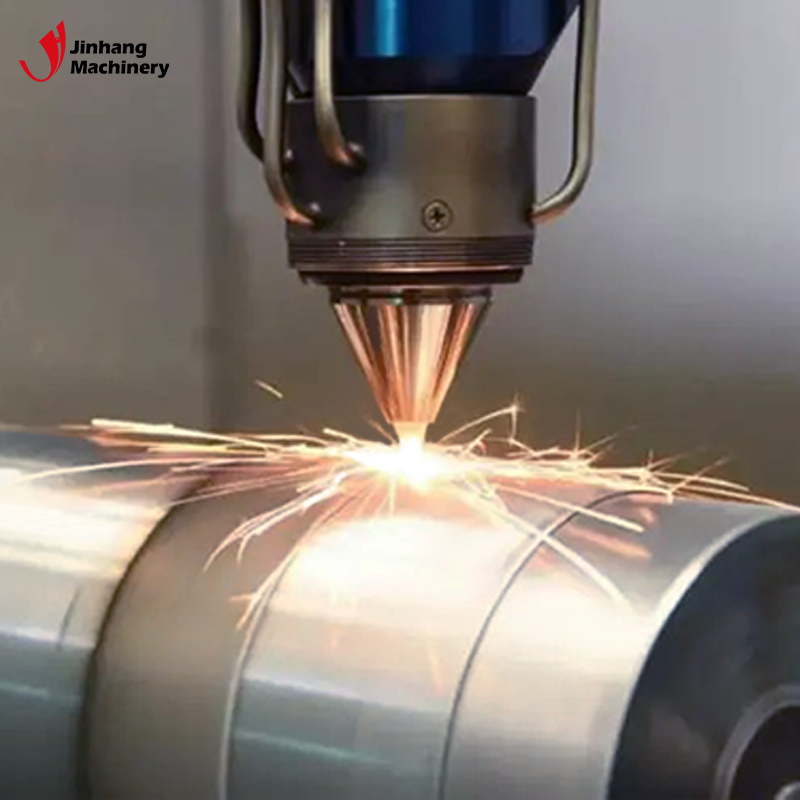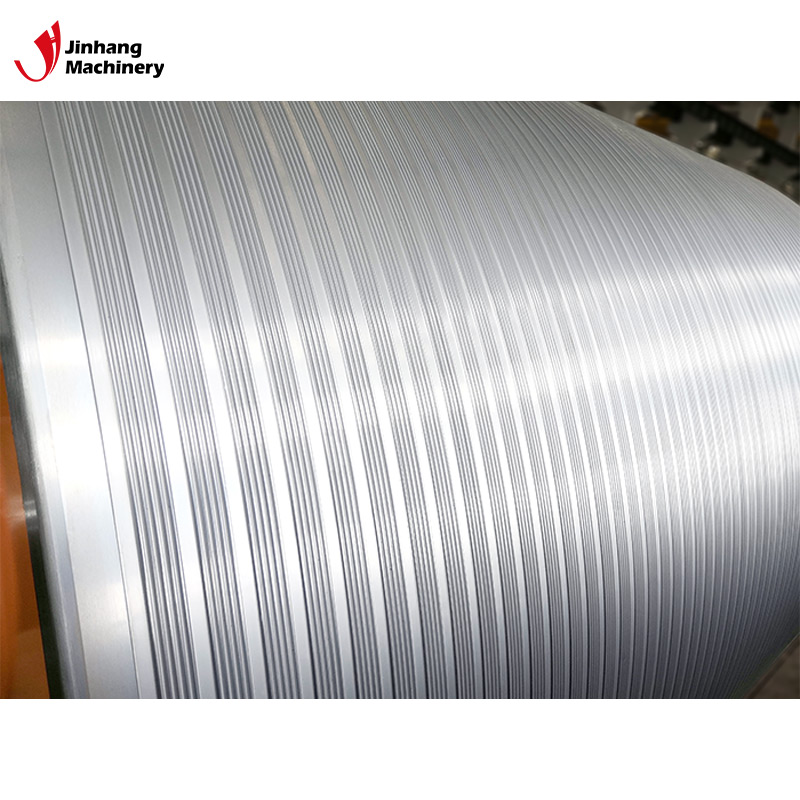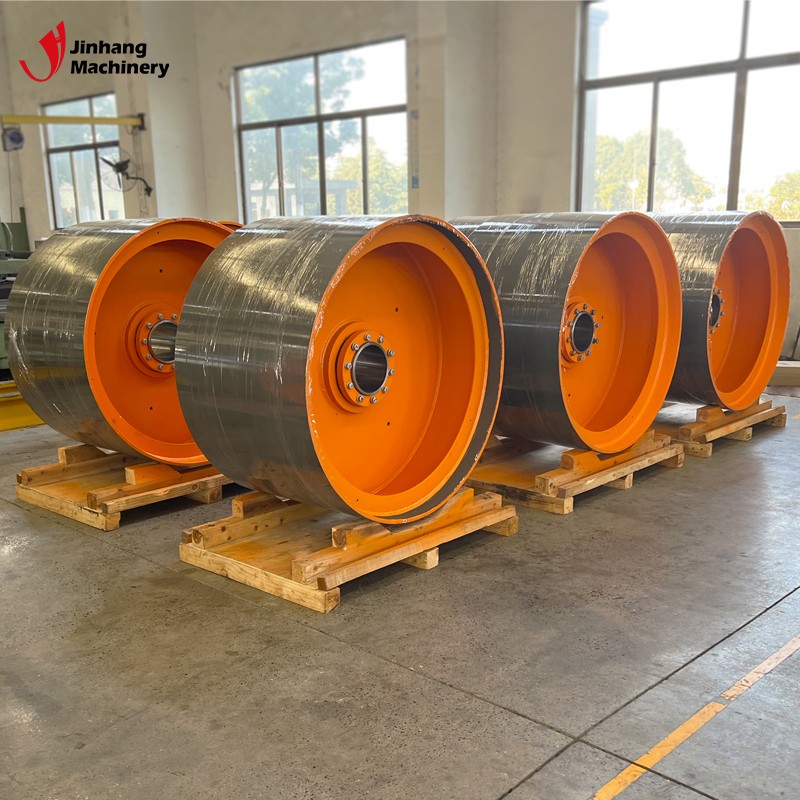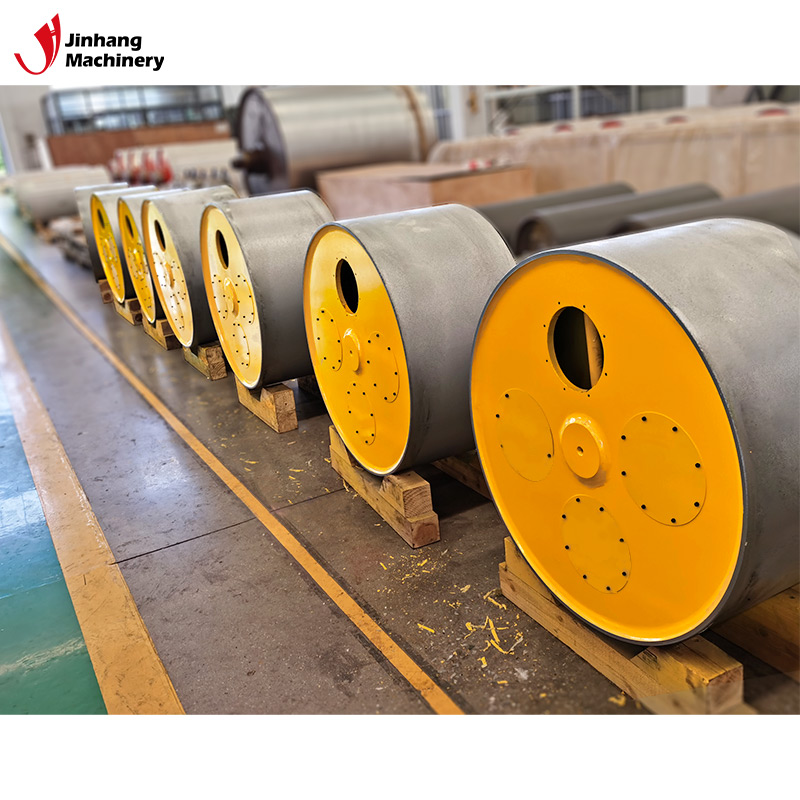Is the coating of tungsten carbide coated roller magnetic or non-magnetic?
As a key mechanical component in the manufacturing industry, industrial rollers are widely used in various production lines. In order to improve their durability and wear resistance, industrial rollers usually apply a variety of surface treatment technologies, among which the most common is tungsten carbide coated rollers. Tungsten carbide coated rollers are known for their excellent hardness and corrosion resistance, and play an important role in the surface protection of industrial rollers. However, regarding the magnetic problem of tungsten carbide coating rollers, many people have doubts: Is tungsten carbide coating magnetic or non-magnetic?
Starting from the chemical and physical properties of tungsten carbide, this article will explore its application in industrial tungsten carbide coated rollers and answer its magnetic problem in detail.

What is tungsten carbide coating?
Tungsten carbide (WC) is a compound composed of tungsten (W) and carbon (C) atoms with very high hardness and wear resistance. Its hardness is close to that of diamond, which can significantly improve the service life of industrial tungsten carbide coated rollers under various harsh working conditions. Tungsten carbide is widely used in the surface treatment of industrial rollers, especially in situations where wear resistance, high temperature resistance and corrosion resistance are required, such as papermaking, printing, textile, steel manufacturing, plastic processing and other industries.
Tungsten carbide coatings are usually applied to the surface of industrial rollers by processes such as thermal spraying or chemical vapor deposition (CVD). These processes can form a dense and hard tungsten carbide coating on the surface of the substrate, greatly improving the wear resistance and impact resistance of industrial tungsten carbide coated rollers.
What are the physical properties of tungsten carbide coating rollers?
Hardness and wear resistance
One of the most prominent characteristics of tungsten carbide coated rollers is its extremely high hardness. On the Mohs hardness scale, tungsten carbide has a hardness of about 9, second only to diamond (10). This hardness makes it perform well in high-friction and high-impact working environments, especially in industrial environments that require long-term resistance to wear.
Corrosion resistance
In addition to hardness, tungsten carbide coated rollers also exhibit excellent corrosion resistance. It can resist the erosion of a variety of chemicals, especially in acidic and alkaline environments. Such properties make it a material of choice for many industrial applications, especially in equipment that handles corrosive substances or operates in humid environments.
Thermal Stability
Tungsten carbide coated rollers have a high melting point of 2870°C, which allows it to maintain its physical properties in high temperature environments. This property makes tungsten carbide coatings promising for use in high temperature manufacturing processes such as steel, plastics and fiber production.

What are the magnetic properties of tungsten carbide coated rollers?
Magnetism of tungsten carbide coating rollers themselves
In order to answer the question "Is tungsten carbide coating magnetic?", we first need to understand the magnetic properties of tungsten carbide as a material. Based on its chemical composition and crystal structure, tungsten carbide is a non-magnetic material.
Tungsten is a transition metal, but when it is combined with carbon to form tungsten carbide, its crystal structure is not magnetic. This means that pure tungsten carbide itself does not have any measurable magnetic properties. Therefore, industrial rollers using tungsten carbide coatings will not exhibit magnetism under normal conditions.
Magnetism of the substrate
However, while the tungsten carbide coating itself is non-magnetic, the substrate of the industrial roller may be magnetic. For example, the substrate of industrial tungsten carbide coated rollers is usually made of alloys such as steel, and these metal materials may have certain magnetic properties themselves. Therefore, even if the tungsten carbide coating is not magnetic, the entire industrial roller may show magnetism due to the magnetism of its substrate.
Therefore, in actual applications, if the substrate of the industrial tungsten carbide coated roller is a magnetic material, although the tungsten carbide coating itself is non-magnetic, the equipment may show magnetism during operation or testing. This magnetism does not come from tungsten carbide, but is a property of the substrate.
Magnetism of tungsten carbide composite coating
In some special applications, tungsten carbide coating may be used in combination with other metal or ceramic materials. These materials may sometimes be magnetic. For example, some coating processes may combine tungsten carbide with magnetic metals such as cobalt to improve the overall mechanical properties of the material. In this case, although tungsten carbide itself is non-magnetic, the mixed metal components may give the coating certain magnetism.
In summary, the magnetic problem of tungsten carbide coated rollers depends largely on the composition of the coating and the nature of the substrate.

What are the applications of tungsten carbide coating in industrial rollers?
Printing and Packaging Industry
In the printing and packaging industry, tungsten carbide coated rollers are mainly used in printing processes that are subject to high wear, such as flexographic printing and gravure printing. In these processes, industrial tungsten carbide coated rollers need to frequently contact paper and ink, generating a lot of friction. Tungsten carbide coatings can effectively resist this friction and extend the service life of the rollers.
Since rollers in the printing industry usually require precise control of temperature and pressure, the thermal stability of tungsten carbide can also play an important role in this process, ensuring that the coating is not easy to fall off or damage under high temperature conditions.
Steel Manufacturing Industry
In steel manufacturing, tungsten carbide coated industrial rollers are mainly used for rolling steel plates or strips. The high hardness and wear resistance of tungsten carbide enable it to withstand the high pressure friction when rolling steel. At the same time, its corrosion resistance can also resist the chemicals in the steel production process, extending the service life of the equipment.
Although the steel substrate is usually magnetic, the non-magnetic nature of tungsten carbide coated rollers means that they will not interfere with the operation of magnetic detection or other magnetic induction equipment involved in the steel production process.
Papermaking Industry
In the papermaking industry, industrial tungsten carbide coated rollers need to withstand tremendous pressure during pulp production and paper coating. Tungsten carbide coated rollers can resist the corrosion of moisture and chemicals contained in the pulp while maintaining good wear resistance. Therefore, the papermaking industry has a great demand for tungsten carbide coatings.
Due to the complexity of pulp production equipment, tungsten carbide coated rollers usually need to withstand long-term high-intensity work. The non-magnetic tungsten carbide coating can maintain the stability and uniformity of the coating during this process.

How to maintain tungsten carbide coated rollers?
Although the application of tungsten carbide coatings in industrial rollers has many advantages, proper maintenance and care are still important steps to ensure its long-term use. To ensure the performance of tungsten carbide coated rollers, companies need to regularly check the wear of the rollers and take the following measures:
● Regular cleaning: When ink, dust or other impurities accumulate on the surface of tungsten carbide coated rollers, timely cleaning helps prevent surface corrosion and performance degradation.
● Avoid strong impact: Although tungsten carbide coated rollers are extremely hard, severe impact may cause cracks in the coating. Therefore, unnecessary impact or collision of the roller should be avoided during operation.
● Surface repair: When obvious wear or scratches are found on the surface of the tungsten carbide coated roller, surface repair should be carried out in time, and its performance can usually be restored by re-coating the tungsten carbide layer.
Jiangsu Jinhang Machinery Manufacturing Co., Ltd. (JH Machinery) is a renowned manufacturer of industrial rolls, delivering excellence since 2001. Our ISO9001-certified factory is equipped to produce rolls like chrome-plated rolls, heating rolls, and rubber rolls for industries such as packaging, mining, and automotive. With tailored solutions, factory-direct prices, and dependable after-sales support, we ensure a premium experience for our buyers. Choose JH Machinery for reliable and affordable roll solutions.
